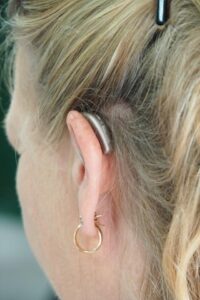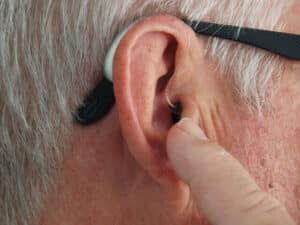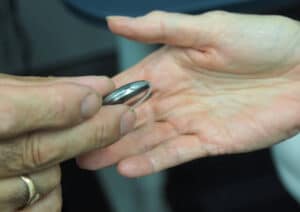Navigating the world of healthcare and insurance can be a complex task, especially when it comes to understanding what specific services are covered under a given plan. One such area that often raises questions is hearing aid coverage under health plans, particularly through Medicaid in Georgia. So, does Medicaid benefits cover hearing aids in Georgia? Let’s dive into this topic.

Medicaid Benefits Georgia
In Georgia, Medicaid is a comprehensive healthcare program designed to aid low-income individuals and families in accessing necessary medical care. This program covers a wide range of services, from routine health check-ups to more specific medical needs such as dental care, prescription medications, and vision care. For those eligible for Medicaid in Georgia, the program aims to reduce the financial barrier to accessing essential health services, ensuring that all participants receive the care they need without the burden of insurmountable medical bills. Understanding the specifics of what Medicaid covers is crucial for beneficiaries to make the most of the benefits available to them.
Georgia Hearing Aid Distribution Program
Firstly, it’s important to highlight the Georgia Hearing Aid Distribution Program. This program, enacted by the Georgia Legislature, provides hearing aids to eligible Georgians. It’s funded by the Public Service Commission and primarily targets low-income residents who need hearing assistance.

Medicaid Coverage
Medicaid does cover hearing aids in Georgia, but with certain conditions attached. There are eight plans available to beneficiaries, out of which three require prior authorization for hearing aid coverage. Repairs and replacements are also included in the coverage.
For children, Medicaid covers the cost of hearing aids. However, the challenge often lies in finding a provider who accepts Medicaid. Notwithstanding, the coverage is there, ensuring that children who need these devices can access them.
State Insurance Mandates for Hearing Aids
In Georgia, the health benefit policy mandates coverage of up to $3,000 per ear every 48 months for covered individuals who are 18 years of age and under. This is a significant relief for families with children who need hearing aids but are worried about the financial implications.
Medicaid Benefits: Hearing Aids and Other Hearing Devices
While data for Georgia is presented as reported by the state, it remains unclear what specific hearing devices are covered[^6^]. Nevertheless, the fact that some level of coverage exists is a positive sign for those in need of hearing aids.
Prior Authorization
For some covered services or medications, Peach State Health Plan may require approval, known as Prior Authorization. You do not need a paper referral for this, which simplifies the process somewhat.
Income Threshold
You can qualify to receive hearing aids through the Georgia Hearing Aid Distribution Program if your income is no more than 200% of the Federal Poverty Level (FPL), and you’ve been a Georgia resident for at least 90 days.

Hearing Aids for Children in Georgia
When it comes to children with hearing impairment in Georgia, the state ensures that younger residents are not left behind in terms of accessing the necessary auditory support and related services. Through Medicaid coverage, hearing aids for children are fully covered, which includes the initial purchase, fittings, and any subsequent adjustments required to ensure optimal functioning of the device. This comprehensive support is critical for the child’s language development, educational performance, and overall quality of life. Parents and guardians looking to avail of this benefit for their children should consult with Medicaid-approved providers to understand the process and ensure that their kids receive the best possible care to meet their hearing needs.
Does Georgia Medicaid cover Cochlear Implants?
Regarding cochlear implants, Medicaid in Georgia does offer coverage, subject to certain medical necessity criteria and prior authorization. Cochlear implants are considered for individuals who meet specific hearing loss criteria and for whom hearing aids provide insufficient support. This coverage is a testament to Medicaid’s commitment to providing a broad spectrum of care for those with hearing impairments, ensuring they have access to advanced treatments that can significantly enhance their quality of life. Individuals interested in cochlear implants should consult with their healthcare provider to discuss eligibility requirements and the process for obtaining prior authorization through Medicaid.
In conclusion, while Medicaid does cover hearing aids in Georgia, it’s important to understand the specific nuances of the coverage. Coverage varies depending on factors such as age, income level, and the specific plan one is enrolled in. Therefore, it’s always crucial to consult with a healthcare professional or health insurance representative to fully understand what’s covered under your plan.
Share This Article
